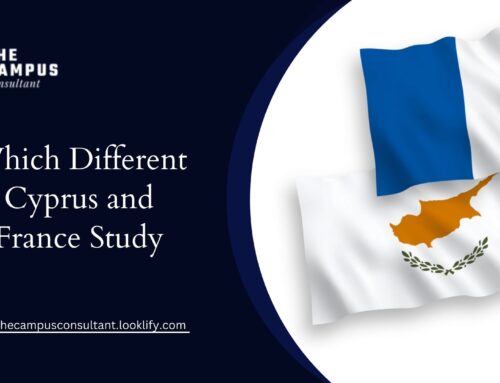Introduction
Embarking on a journey of higher education is a pivotal decision that can significantly shape one’s future. Among the myriad of choices available to aspiring students, Germany and Australia stand out as prominent destinations for academic pursuits. In this comprehensive guide, we delve into the nuances that differentiate studying in Germany from the educational landscape in Australia. Germany and Australia, though distinct in geography and cultural heritage, share notable differences in their education systems. Germany boasts a renowned higher education system with a strong emphasis on research, offering tuition-free education even to international students. The country’s technical and engineering focus is renowned globally. In contrast, Australia, with its diverse and inclusive education environment, emphasizes innovation and practical skills. The Australian education system encourages critical thinking and creativity, with a broad range of courses. While Germany’s education system is more structured and specialized, Australia’s is flexible and adaptable, reflecting their respective cultural and economic priorities.
Choosing the Right Destination
Germany: A Hub of Technological Innovation
Germany, known for its robust engineering and technological prowess, has emerged as a magnet for students seeking cutting-edge education. Renowned for its emphasis on research and development, German universities offer an environment where theoretical knowledge seamlessly integrates with practical applications. The country’s commitment to innovation and engineering excellence makes it an ideal choice for those aspiring to carve a niche in the tech-driven world. Germany stands as a hub of technological innovation, renowned for its commitment to cutting-edge advancements. The country’s robust engineering and research infrastructure have propelled it to the forefront of global technological leadership. With a strong emphasis on precision engineering and industrial innovation, Germany has cultivated a reputation for excellence in fields such as automotive engineering, manufacturing, and renewable energy. The collaborative synergy between academia, industry, and research institutions fosters a dynamic ecosystem for technological breakthroughs. This commitment to innovation positions Germany as a key player in shaping the future of technology, contributing significantly to global progress and development.
Australia: A Melting Pot of Diversity and Quality Education
On the other side of the globe, Australia beckons with its diverse cultural milieu and a high standard of education. The country’s universities are globally recognized for their academic rigor and commitment to fostering critical thinking. With a focus on inclusivity and a multicultural environment, Australia provides a unique educational experience that goes beyond the confines of traditional classroom learning. Australia stands out as a melting pot of diversity and a beacon of quality education. The country’s education system is globally recognized for its inclusivity, offering a wide array of courses that cater to a diverse student population. With a multicultural society, Australian universities provide a rich and inclusive learning environment, fostering cross-cultural understanding. The emphasis on practical skills, critical thinking, and research makes Australian education highly regarded internationally. Moreover, the country’s stunning landscapes and vibrant cities contribute to a unique and enriching overall educational experience. Australia’s commitment to quality education and cultural diversity makes it a sought-after destination for students worldwide.
Academic Structure and Flexibility
Germany: The Pursuit of Specialization
German universities are renowned for their specialized academic programs. The education system encourages students to delve deep into their chosen field of study, fostering expertise and proficiency. The emphasis on research-oriented learning equips students with a holistic understanding of their subject matter, preparing them for the challenges of the professional world. Germany is characterized by a distinctive educational ethos that places a significant emphasis on specialization. The country’s education system is renowned for its structured and specialized approach, guiding students towards in-depth knowledge and expertise in their chosen fields. From vocational training to higher education, Germany’s commitment to specialization is evident in its rigorous curriculum and apprenticeship programs. This approach aligns with the nation’s industrial prowess, particularly in engineering and technical disciplines. The pursuit of specialization not only prepares individuals for specific professions but also contributes to Germany’s global reputation for precision and excellence in various specialized industries.
Australia: Flexibility and Holistic Learning
In contrast, Australian universities emphasize a more flexible approach to education. The curriculum often incorporates a broad spectrum of subjects, allowing students to explore various disciplines before honing in on their major. This flexibility not only caters to diverse interests but also nurtures a well-rounded skill set, preparing students for a dynamic and ever-evolving job market. Australia stands out for its education system, characterized by flexibility and a commitment to holistic learning. The Australian approach to education values adaptability and a well-rounded skill set. Universities in Australia offer a diverse range of courses, allowing students to tailor their academic journey to suit their interests and career goals. The emphasis goes beyond traditional academic achievements, encouraging the development of critical thinking, creativity, and practical skills. This holistic approach extends to a vibrant extracurricular environment, fostering personal growth and a sense of community. Australia’s education system, with its flexible and comprehensive nature, prepares students for the dynamic challenges of the modern world.
Language of Instruction
Germany: A Gateway to German Proficiency
Studying in Germany provides a unique opportunity to immerse oneself in the German language. While many programs are offered in English, acquiring proficiency in German opens doors to a deeper cultural understanding and enhanced integration into the local community. This linguistic element adds a distinctive layer to the educational experience. Germany, a nation synonymous with precision engineering, rich cultural heritage, and economic prowess, stands as a gateway to German proficiency. The German language, renowned for its linguistic nuances and global relevance, opens doors to a myriad of opportunities in business, academia, and cultural exchange. As the largest economy in Europe and a hub for innovation, mastering German becomes a strategic advantage for professionals seeking global success. Beyond its economic significance, Germany’s contributions to literature, philosophy, and the arts make German proficiency a key to unlocking a deep understanding of Western culture. Embark on a linguistic journey with Germany as the destination, and explore a world of linguistic and cultural enrichment What Difference Germany and Australia study .
Australia: English as the Primary Medium
Australia, being an English-speaking country, conducts the majority of its academic programs in English. For international students, this eliminates the language barrier, allowing for seamless communication and comprehension. The emphasis on English proficiency aligns with the globalized nature of the professional landscape, preparing students for international collaborations and opportunities. Australia, a vast and diverse nation, embraces English as its primary medium of communication. With a unique blend of accents, expressions, and cultural influences, Australian English offers a distinctive linguistic experience. As the official language, English plays a pivotal role in education, governance, and everyday interactions. Australia’s multicultural society enriches the language landscape, incorporating indigenous languages and expressions from various immigrant communities. Proficiency in Australian English not only facilitates seamless communication but also provides access to a dynamic and inclusive society. Whether in the bustling cities, serene landscapes, or vibrant coastal regions, English serves as the key to unlocking the diverse tapestry of experiences that Australia has to offer What Difference Germany and Australia study .
Cost of Living and Scholarships
Germany: Affordable Education with Financial Support
One of the standout features of studying in Germany is the low or non-existent tuition fees at many public universities. Additionally, various scholarships and financial aid programs are available to support students throughout their academic journey. This combination makes Germany an attractive destination for those looking to pursue quality education without the burden of exorbitant costs. Germany, renowned for its commitment to education, offers a unique advantage with affordable higher education and robust financial support systems. Home to globally esteemed universities, German institutions provide high-quality education without exorbitant tuition fees, making it an attractive destination for international students. Additionally, the country offers a range of scholarships, grants, and part-time work opportunities to support students financially. The emphasis on accessibility ensures that education is not a barrier for those seeking knowledge and skills. From undergraduate to postgraduate studies, Germany stands out as a hub for affordable education, fostering a diverse and inclusive academic environment for students from around the world What Difference Germany and Australia study .
Australia: Balancing Quality and Expenses
While Australia’s tuition fees might be comparatively higher, the country offers an array of scholarships and financial support options. The investment in an Australian education is often viewed as a strategic one, considering the high-quality academic standards, research opportunities, and the potential for a rewarding career path post-graduation. Australia strikes a harmonious balance between offering high-quality education and managing expenses for students. Renowned for its world-class universities and academic excellence, Australia provides a diverse range of courses across various disciplines. While the cost of living can vary, the Australian government has implemented measures to ensure international students receive fair treatment. Additionally, there are scholarship opportunities and part-time work options, helping students offset expenses. The quality of education, combined with a commitment to affordability, makes Australia an attractive destination for those seeking a well-rounded academic experience without compromising on standards. With stunning landscapes and a vibrant culture, students find a conducive environment for learning and personal growth What Difference Germany and Australia study.
Summary
In the dynamic realm of international education, choosing between Germany and Australia is a decision that requires careful consideration What Difference Germany and Australia study . Whether it’s the specialized programs of Germany or the diverse, flexible curriculum of Australia, each destination presents a unique set of opportunities for academic growth and personal development What Difference Germany and Australia study .







Leave A Comment